MONTREAL – The head of a Quebec government-appointed commission looking into the 2012 student protests hopes his inquiry helps future demonstrations take place peacefully.

Serge Menard, a former public security minister kicked off public hearings on Monday by saying the events of the so-called “Maple Spring” led to a crisis of confidence regarding police.
“It’s a disturbing situation,” he said in his opening statement.
“The commission will take a systemic look at these events of spring 2012 – not only to draw lessons from 2012, but to put everything in place so that if a similar intense debate comes along in Quebec in the future, it will unfold peacefully in a very democratic spirit.”
READ MORE: Quebec inquiry into ‘Maple Spring’ kicks off Monday
The raucous protests were staged against tuition increases by the former Liberal government, which were eventually pared back when the Parti Quebecois came to power.
The PQ called the inquiry under pressure from the left, which accused police of serial abuses in quelling the protests.
But questions were raised about the government’s objectivity when, on the very day it announced the inquiry, the minister responsible apparently blamed the Liberals for the unrest.
On Monday, Menard shared statistics about those restless months – which saw more than 2,000 protest-related arrests, scores of ethics complaints against police for alleged abuses, injuries, property damage, cancelled classes, and millions in law-enforcement costs.
He said that, according to the information collected so far, the public is skeptical about measures in place to take disciplinary steps against officers.
The first person to appear before the inquiry was Martine Desjardins, the former president of FEUQ, a federation representing university students.
During her testimony, she outlined the events that led to the adoption of a strategy to oppose the tuition fee hikes.
She blamed the former Liberal government for the crisis.
Menard said the most dramatic events took place on May 4 in Victoriaville, when gas, chemical agents and plastic bullets were used against protesters.
In pictures: Scenes from the protests in Victoriaville, Que.
That led to 250 ethics complaints filed against police. One protester lost an eye during the violent clash, which also saw some demonstrators beat a provincial police officer with a stick.
Several hundred students had been demonstrating outside the provincial Liberal party’s general council meeting, a small town about 150 kilometres northeast of Montreal. Some rushed the security barrier outside the event, which touched off an extended scuffle with police.
Overall, provincial police officers were involved in 413 demonstrations which required $6.8 million in overtime costs.
Menard said that in Montreal, between February and September 2012, 532 demonstrations were held involving around 750,000 demonstrators and 34,260 police officers. There were 2,225 arrests by police. But there were also 211 complaints filed against police.
- Alberta to overhaul municipal rules to include sweeping new powers, municipal political parties
- Norad looking to NATO to help detect threats over the Arctic, chief says
- Grocery code: How Ottawa has tried to get Loblaw, Walmart on board
- Military judges don’t have divided loyalties, Canada’s top court rules
Montreal police operations required more than $17 million in overtime costs for extra police services. There were also incidents in Sherbrooke, Quebec City and Gatineau.
Menard said his inquiry will focus on the number of demonstrations, their location, the arrests, and the number of injuries. It will also look at the use by police forces of “flash-bang” grenades, chemical agents like pepper spray, batons and mass arrests through the tactic of crowd kettling.
Menard raised the issue of being able to identify police during a demonstration.
“It’s useless to file a complaint against a police officer who is not identified,” he said. “The information collected at this stage raises important questions about the obligation of police to visibly wear their number.”
Menard said the commission is concerned by the lack of rules for how police officers are required to identify themselves.
The commission, which has already interviewed 61 “key actors,” is supposed to submit a report to Quebec’s public security minister before Dec. 20.
In pictures: Quebec student protests
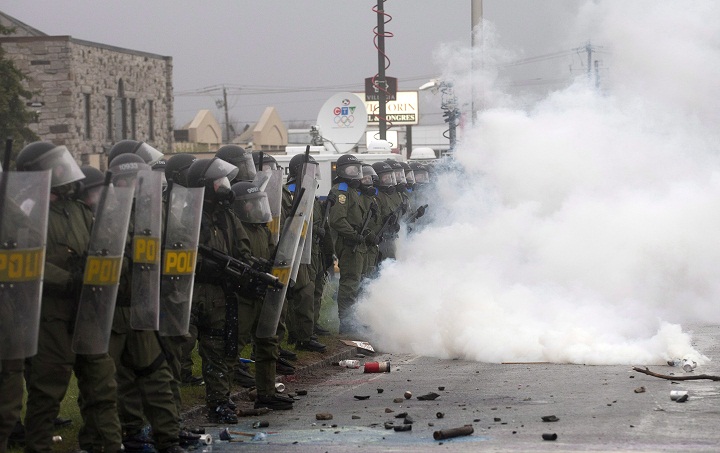





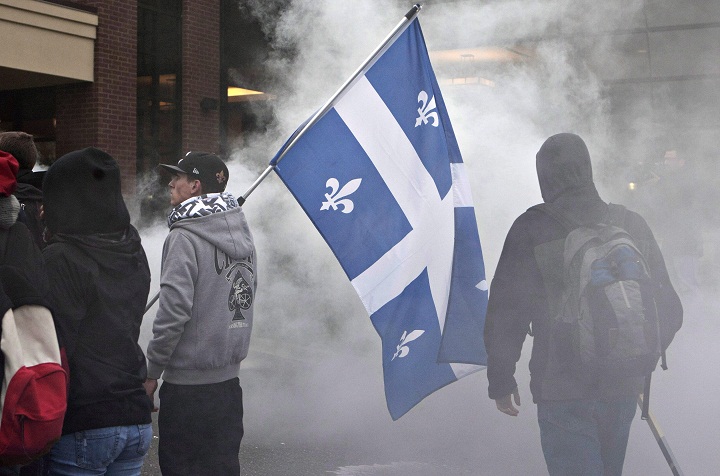








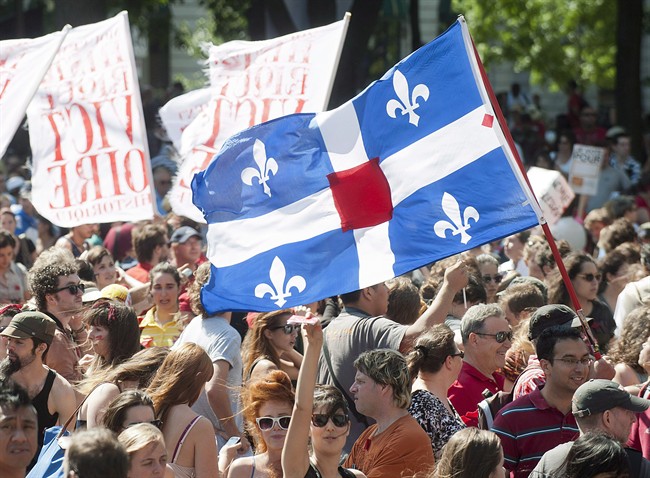





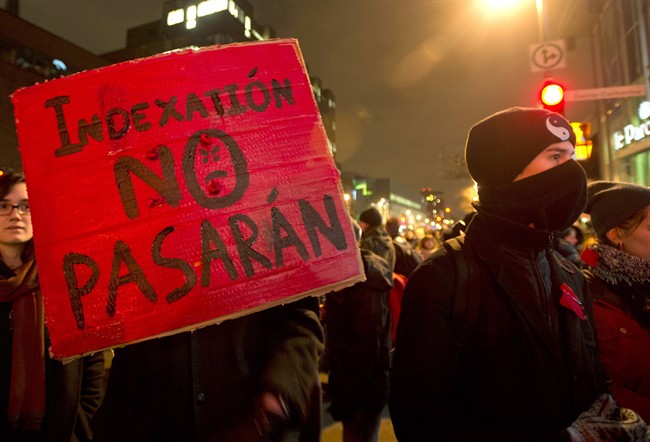

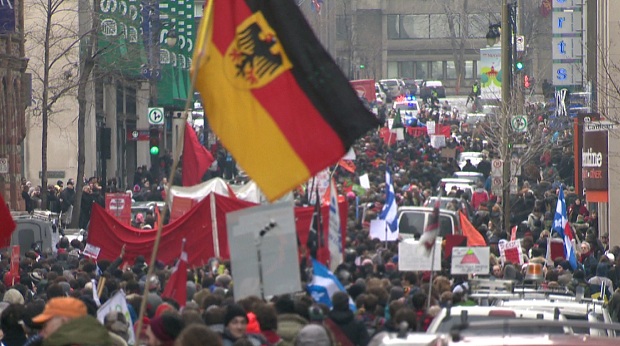



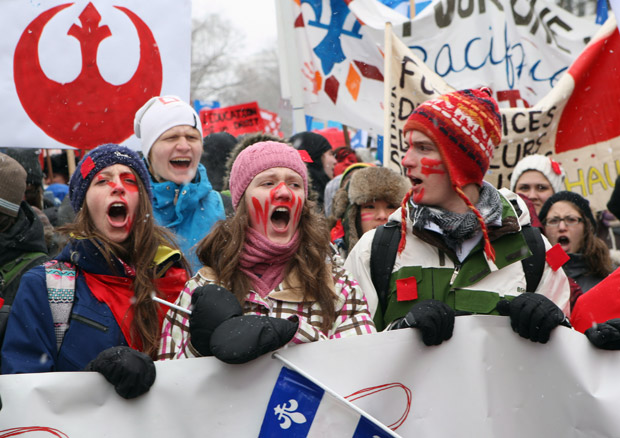





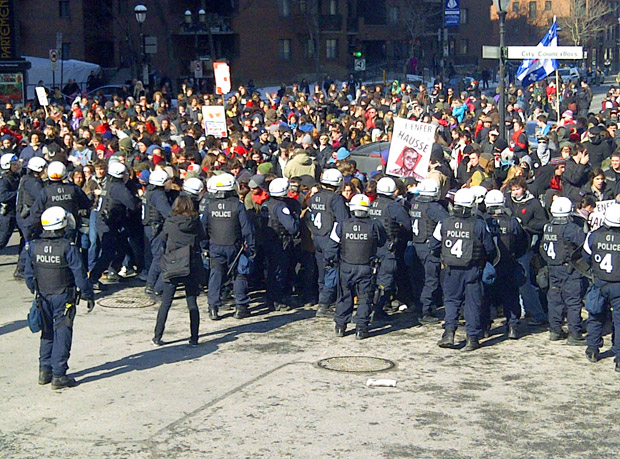
Comments